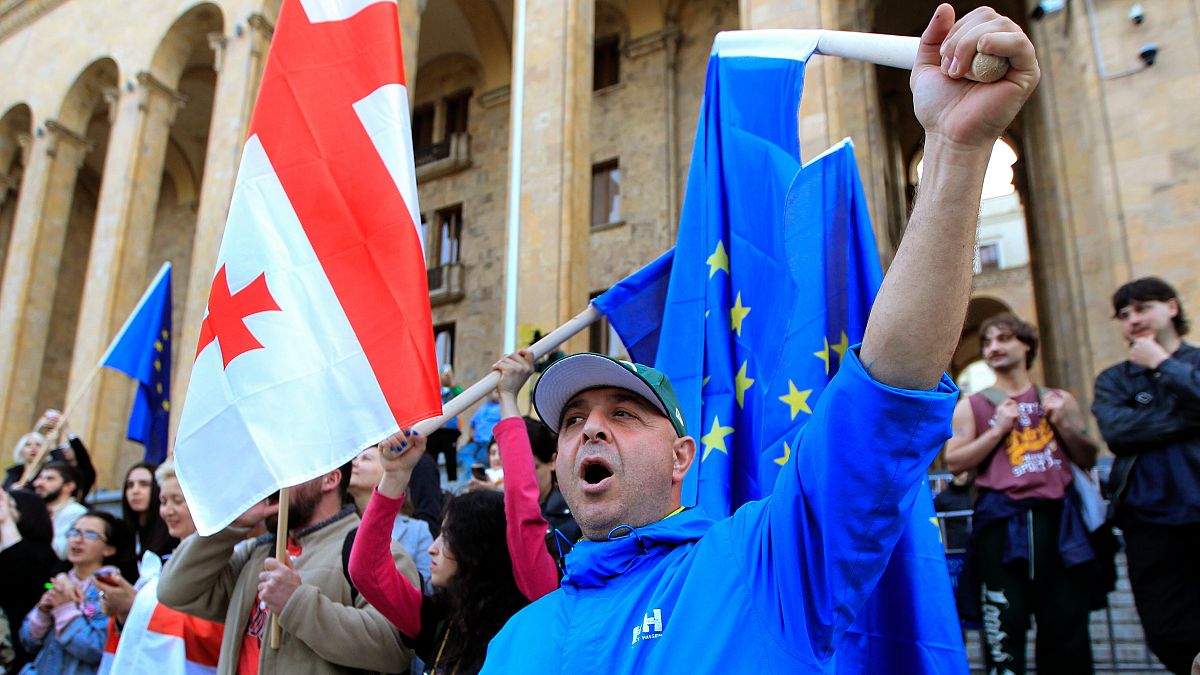Legislation drafted to combat "foreign influence" has been met with widespread protests.
Thousands of Georgians have taken to the streets of Tbilisi to protest against a law that they say imitates repressive measures taken in Russia.
Georgia's governing party Georgian Dream has redrafted a controversial law on banning foreign agents in the country that was withdrawn a year ago due to public outcry.
The law calls for media and non-commercial organisations to register as "foreign agents" if they receive more than 20% of their budget from abroad.
The only change from the first version of the law is a recasting of the phrase “agents of foreign influence” as “pursuing the interests of a foreign power”.
The law has been criticised in both Brussels and Washington as being similar to that used in Russia to stigmatise independent news media and organisations.
Georgian Dream is often criticised as concerningly open to Russia, though there is a long-running debate over whether this characterisation is justified.
The country's president, Salome Zourabichvili has spoken out forcefully against the bill. Speaking out at a protest, she said the legislation "represents a choice between "independence or enslavement, that of Europe and Russia".
Brussels has cautioned that if passed, the "foreign influence" law would deal a major blow to Georgia's EU candidacy – something the Georgian population widely supports.
The European External Action Service, the EU's leading foreign policy arm, said last week that reintroducing the bill raises "serious concerns.”
"The EU recalls that the European Council granted Georgia candidate status on the understanding that the relevant steps set out in the Commission’s recommendation of 8 November 2023 are taken," the service warned in a statement.
"Step 9 includes a recommendation for Georgia to ensure civil society can operate freely, and Step 1 calls on Georgia to fight disinformation against the EU and its values.
"Transparency should not be used as an instrument to limit civil society’s capacity to operate freely."
Russia has long sought to advance its interests in Georgia, one of several bordering countries that the Putin government views as within its supposed legitimate sphere of influence.
In 2008, Russia invaded two breakaway Georgian regions, South Ossetia and Abkhazia, in a move that previewed its assault on eastern Ukraine in 2014. There have been no formal diplomatic relations between Tbilisi and Moscow since then.
